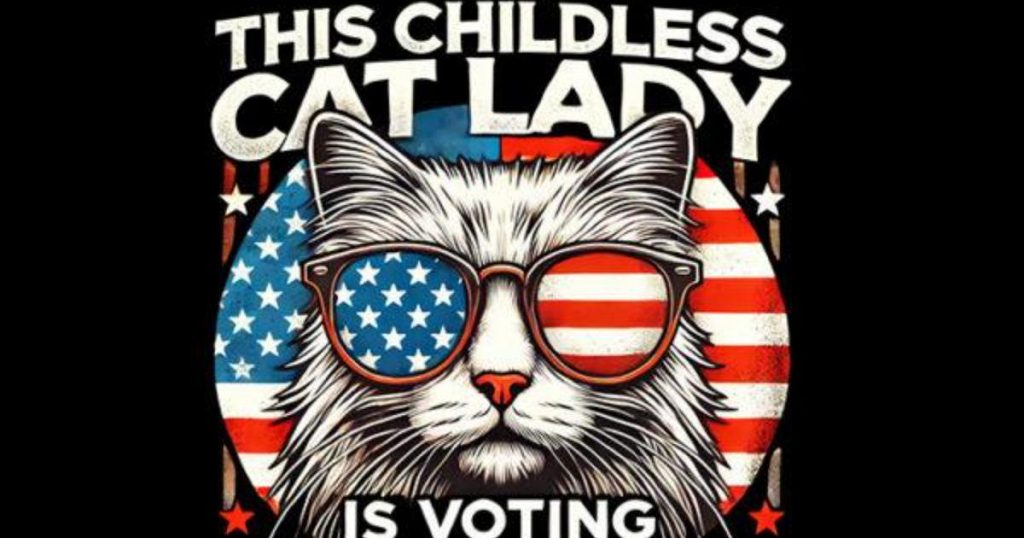In recent days, Joe Biden’s difficulties and gaffes caused jokes, irony, and slogans to be monopolized by Republicans. However, Biden withdrew from the race, and Kamala Harris became the Democratic candidate. This change led to a shift in the narrative, with an increase in campaign funding and a new wave of humor and quick wit from Harris gaining her more popularity. The gap between Trump and Biden narrowed significantly, with Trump now appearing outdated in communication compared to the fresh and youthful language used by Harris. Furthermore, some gaffes are now coming from the Republican side, with Vice Presidential candidate Vance facing criticism for his derogatory comments towards childless women associated with the Democratic party.
Vance’s comments sparked backlash, even from celebrities like Jennifer Aniston. Although Vance defended his words as sarcastic, the impact of his remarks was significant, leading to the creation of groups like “Cat ladies for Kamala” in response. Slogans like “If my cat could vote, it would vote for you” began circulating among Harris’ supporters as a way to mock Vance’s comments about “cat ladies” and highlight the representation of women without children in politics. This grassroots movement has gained momentum across the U.S., with t-shirts being printed and social media campaigns urging Cat Ladies to vote for Kamala Harris.
In the world of social media, gaffes, blunders, mistakes, and unfortunate jokes can quickly go viral and have a significant impact on an election campaign. Politicians often find themselves scrambling to rectify and clarify such statements, as these viral moments can sway public opinion. In many cases, trying to undo the damage caused by a gaffe can be more challenging than the original mistake itself. Vance experienced this firsthand, as his ill-advised comment against Democratic women has now become a rallying cry for Harris’ supporters.
The transformation of Vance’s offensive comment into a useful slogan for Kamala Harris’ campaign exemplifies the power of social media in shaping the political landscape. The emergence of groups like “Cat ladies for Kamala” shows how a single viral moment can mobilize support and energize voters. As the campaign heats up, social media platforms have become battlegrounds where messaging, humor, and mistakes can all play a crucial role in influencing voter behavior. The viral nature of gaffes and slogans has created a new dynamic in politics, where digital communication can have a profound impact on the electoral process.
Overall, the evolving dynamics of political communication in the digital age have reshaped campaign strategies and public discourse. Harris’ ability to leverage humor and sarcasm to navigate through gaffes and controversies demonstrates the importance of adaptability and agility in modern politics. As the 2020 U.S. presidential election unfolds, the influence of social media and viral moments will continue to shape the candidates’ messaging and public perception. The story of Vance’s gaffe and its transformation into a rallying cry for Harris’ supporters serves as a cautionary tale for politicians navigating the unpredictable waters of digital communication in today’s political landscape.


